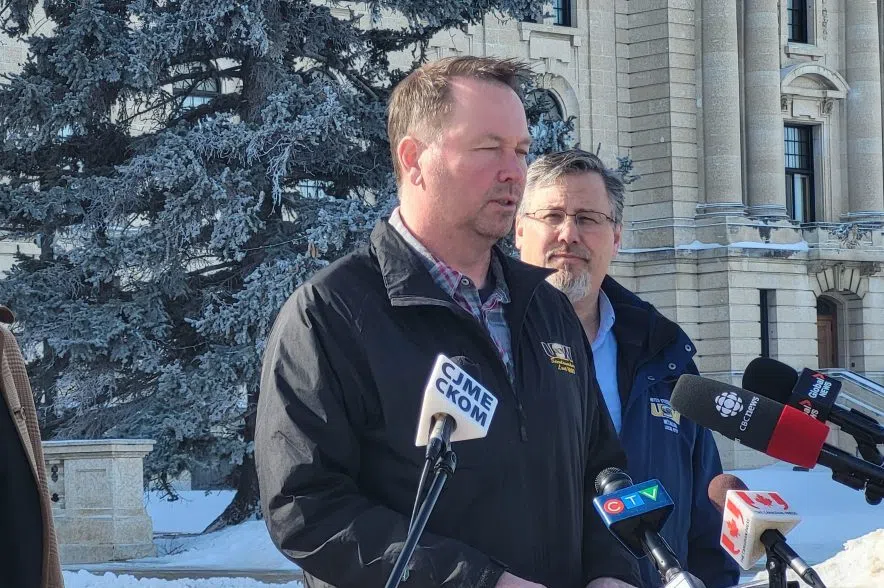Ottawa’s newly announced supports to the Canadian steel industry are being welcomed by a local union leader.
Mike Day, president of United Steelworkers Local 5890, said he was pleased that workers were having their concerns heard.
“It’s a good feeling. The federal government is listening to what’s happening in the steel industry. It’s a positive announcement,” Day said.
The federal government announced several measures on Wednesday, including the tightening of tariff rate quotas on imported steel products from non-free-trade agreement (FTA) countries.
Read more:
- Sask. Crown corporations supporting Evraz steel mill in Regina
- Regina steelworkers feeling uncertainty and frustration over U.S. tariff threat
- Steel workers, NDP call on Sask. Party to support industry amid tariff war
The tariff quota levels will go from 100 per cent of 2024 levels of volume to 50 per cent, meaning a 50 per cent tariff will apply on imports above those levels.
“The 2024 levels, we figure, were relatively high regardless of imports being brought in and we have some of the countries that are under free trade agreements that are still ‘bad players’ in the game,” Day said.
“I’m not sure the federal government was really aware about how a country like how a country like Mexico is impacting steel production in Canada.”
Day said “steel dumping” is something that Canada is vulnerable to, even from countries it has an FTA with.
Steel dumping describes the process of exporting products at a lower price than what’s charged domestically.
“The example I’ve been using is South Korea. If they dumped $2.4-2.8 million tons of steel on a product, now that’s cut to 50 per cent. Anything over 1.2 or 1.4 million tonnes of steel is going to be tariffed at 50 per cent above that,” Day said.
“Previously, they were able to go to 100 per cent of the 2024 numbers and now it’s 50 per cent and the 50 per cent tariff on top of it … The 2024 numbers are probably still high to a country like South Korea but it opens up capacity for steel mills.”
Day said it remains to be seen just how impactful it the measures will be, as details about product specifications need to be hammered out.
Prime Minister Mark Carney also announced a $70 million investment toward Labour Market Development Agreements to provide training and income supports for 10,000 affected steel workers.
Additionally, the steel industry will receive $150 million as part of the government’s Regional Tariff Response Initiative through Regional Development Agencies.
“Right now, things are happening with the new ownership out at Evraz. We’re not sure how this will take effect here. We’ll have to have further discussion with the company on that,” Day said.
Read more:











